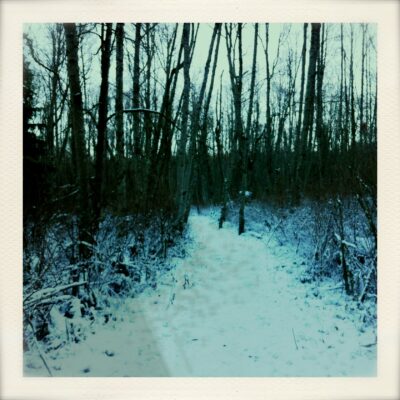From the vantage point of 67, I now see that our childhoods are fashioned more by emotion than thought, more by the moment that smashes into us than by any contemplation. The fundamental impulses of joy or disgust, fear or euphoria are immediate in their impact. They abide in memory.
When I was very young, three moments forged a moral core in me that has never changed, one that I can depend upon in any situation to guide me between right and wrong. Too often, I have not paid attention to that core because I wanted something else more than to obey its warning. I have done ugly things. Later came the inner revolt, the shock of self-loathing. I think we call this conscience.
 No more than 200 feet from the front door of my first home in Myerstown was an old clay pit mine whose road curved like a corkscrew down and around, a blind fall the whole way. Its steep sides had been reclaimed by trees. The road that spiraled down was kept free of growth by the children who found its pitch a perfect slide for sledding.
No more than 200 feet from the front door of my first home in Myerstown was an old clay pit mine whose road curved like a corkscrew down and around, a blind fall the whole way. Its steep sides had been reclaimed by trees. The road that spiraled down was kept free of growth by the children who found its pitch a perfect slide for sledding.
I was no more than 4 or 5 when I was allowed to accompany my older sister and brother for the first time, closer to 4 I think. A crowd of neighborhood kids had already tamped down the slope and their laughter and shouts grew in volume as we stepped upon the head of the worm where it began its curve downward. My older brother, walking in front of me, blocked my sight for a moment. When he stepped away, their bright colors swung emblazoned by the background of snow.
Two male Cardinals and 2 Blue Jays turned in the breeze in bright sun. They were suspended by wires tied to their legs. Their red and blues and grays and blacks were fresh and so shocking that in my mind even now, 63 years later, the whole moment has the quality of some startling scene in a movie, one held by the camera for 3 or 4 beats of time, long enough to lock the instant into long term memory, much longer than our recall of most wounds to our flesh. Someone had shot them, probably with a bb gun, and then displayed them for all the kids in the neighborhood to see.
I do not remember anything except a deep, insistent revulsion, something stunned and unblinking, my first memory of real horror.
I vaguely remember taking a few runs down the corkscrew and then walking home. The sun was so bright on the snow.
Whenever I see a dead bird or some poor creature crushed on the highway, that image comes back. It always has. Allied with it is an equally deep, insistent sympathy for this bird and for all birds at the mercy of an implacable fate, at the mercy of human beings, and then by extension, for all those creatures who did not deserve their fate, who needed mercy and did not find it, all those who suffer cruelty, and for us too, for men and women born innocent into this world who find themselves coming under the pitiless eyes of those who wield power.